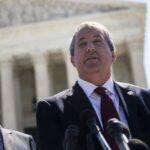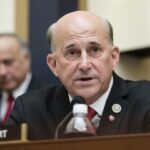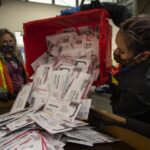By Joe Gomez
Several Republican lawmakers have filed bills in the Texas House of Representatives that would increase the penalty for election fraud from a Class A misdemeanor to a felony.
One such bill authored by State Rep. Craig Goldman (R-Fort Worth) would make illegal voting a “felony of the second-degree unless the person is convicted of an attempt, in which event it is a state jail felony.”
The punishment for a second-degree felony in Texas is up to 20 years in the Texas Department of Criminal Justice. A state felony could result in spending up to two years in a state jail.
Violations of the proposed legislation could include “any false or intentionally misleading statement, representation, or information to be provided to an election official.”
Goldman is joined by other state lawmakers such as state Reps. Andrew Murr (R-Junction), David Spiller (R-Jacksboro), and Bryan Slaton (R-Royse City) who have all filed legislation to increase the severity of the punishment for election fraud.
The push against illegal voting comes as Governor Greg Abbott called for an investigation into the widespread problems with Harris County’s elections last Tuesday. According to a press release from Governor Abbot’s office, voters in Harris County were “frustrated by confusion and delays including missing keys, insufficient paper ballots in Republican precincts, staffing problems, and more.”
“I’m calling on the Secretary of State, the Attorney General’s Office, and the Texas Rangers to initiate investigations into allegations of improprieties in the way that the 2022 elections were conducted in Harris County,” said Abbott. “The allegations of election improprieties in our state’s largest county may result from anything ranging from malfeasance to blatant criminal conduct. Voters in Harris County deserve to know what happened. Integrity in the election process is essential. To achieve that standard, a thorough investigation is warranted.”
On the other side of the aisle, Democrat lawmakers are saying not enough is being done to make voting accessible to minorities and young people.
State Sen. Jose Menendez (D-San Antonio) filed legislation that would increase the number of polling places on campus at universities across Texas. Menedez’s bill would mandate placing at least two voting locations on campuses with 10,000 students, plus one extra site for every additional 10,000 students.
The organization Let Texas Vote is also pushing for similar reforms, writing on their website, “At many Texas colleges and universities, students are forced to go off-campus to find polling locations to cast their ballot. County officials have failed to improve the voting experience for university students with a simple fix like placing a voting site on campuses with large student populations.”
There has been much speculation that a larger turnout of young voters helped to stem the “red wave” predicted during the midterm elections.






